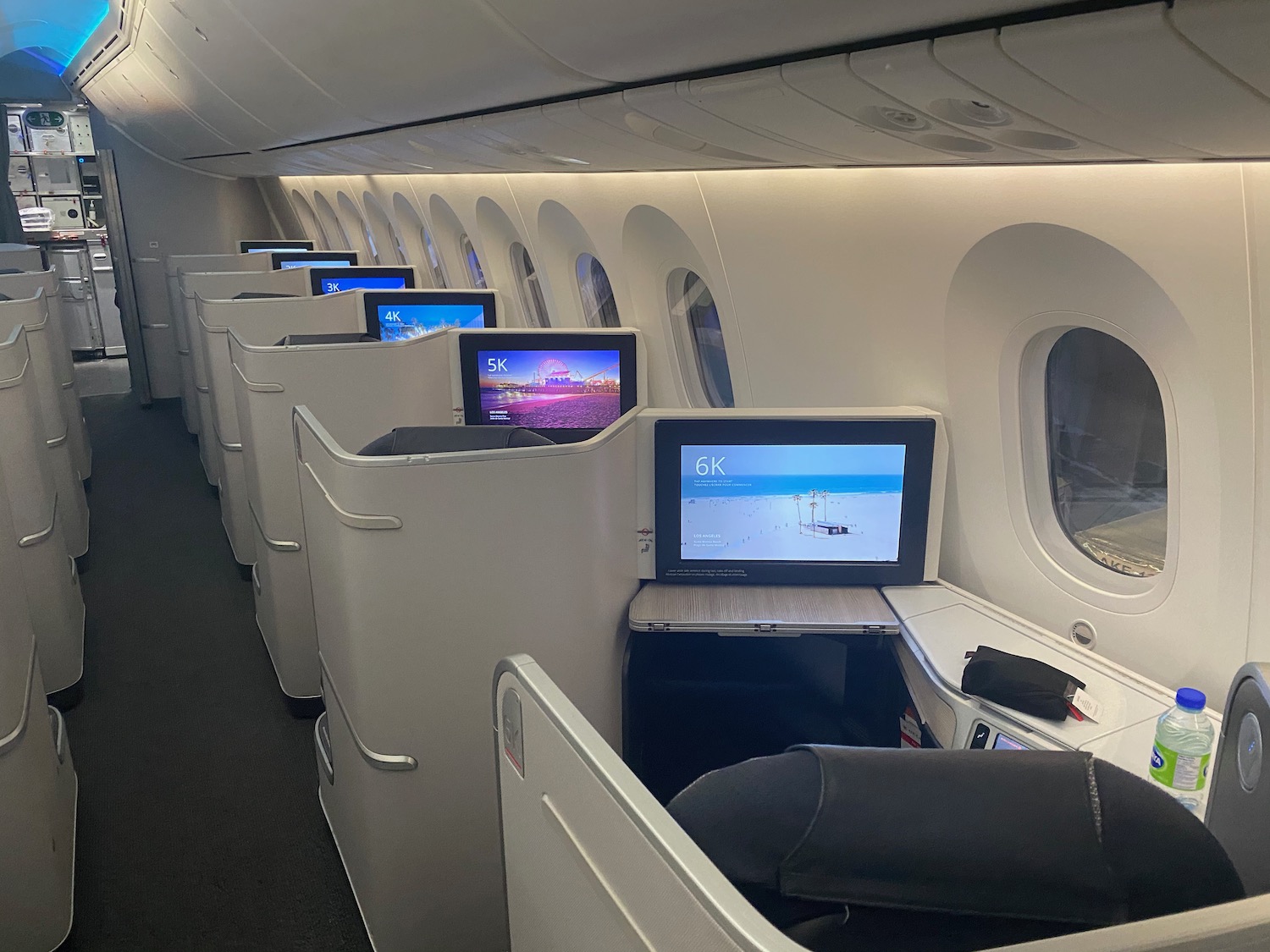
Air Canada has filed a lawsuit against Seats.areo, an online search engine that helps users quickly identify award space across multiple dates. Air Canada alleges that the company’s screen scraping violates law and places tremendous strain on its systems. But is Air Canada really going after the right culprit?
Air Canada Files Lawsuit Against Seats.aero
Seats.areo received a cease and desist letter from Air Canada, requesting that it stop using Air Canada’s website or app to search for award space. The company refused to comply.
Now Air Canada is suing Seats.aero, seeking a court-ordered halt to the manner in which the website searches for award space (automated scripts combing for award space).
Air Canada alleges that Seats.aero’s searches place undue strain on Air Canada systems and that the company misappropriates Air Canada’s Maple Leaf logo (although I see a prominent disclaimer that states the company is not affiliated with any airline). Air Canada also claims Seats.areo violates the Computer Fraud and Abuse Act:
The Air Canada Group brings this action because Mr. Ian Carroll—through Defendant Localhost LLC—created a for-profit website and computer application (or “app”)—both called Seats.aero—that use substantial amounts of data unlawfully scraped from the Air Canada Group’s website and computer systems. In direct violation of the Air Canada Group’s web terms and conditions, Carroll uses automated digital robots (or “bots”) to continuously search for and harvest data from the Air Canada Group’s website and database.
His intrusions are frequent and rapacious, causing multiple levels of harm, e.g., placing an immense strain on the Air Canada Group’s computer infrastructure, impairing the integrity and availability of the Air Canada Group’s data, soiling the customer experience with the Air Canada Group, interfering with the Air Canada Group’s business relations with its partners and customers, and diverting the Air Canada Group’s resources to repair the damage.
Making matters worse, Carroll uses the Air Canada Group’s federally registered trademarks and logo to mislead people into believing that his site, app, and activities are connected with and/or approved by the real Air Canada Group and lending an air of legitimacy to his site and app. The Air Canada Group has tried to stop Carroll’s activities via a number of technological blocking measures. But each time, he employs subterfuge to fraudulently access and take the data—all the while boasting about his exploits and circumvention online.
But Seats.aero is not backing down:
Unfortunately, we have learned that Air Canada filed a lawsuit against us today in the US District Court for Delaware to try and shut down Seats.aero’s support for Air Canada. We attempted to work with Air Canada several times, including offering to change how our scraping worked, but they refused to work with us and filed this lawsuit without any further notice. This is a hostile move against all award travel tools.
Air Canada is alleging that we are retrieving availability too quickly for Star Alliance to handle, but we retrieve availability from other Star Alliance airlines at the same rate, and they appear to have no IT issues coming from it and have never complained to us. We have built our systems to protect the airlines from excessive load, as we search Air Canada for availability at a fixed rate and have controls in place to rate limit all requests sent to Air Canada’s systems. When our users view Aeroplan results on Seats.aero, they no longer have to go run the same search on Aeroplan’s site, saving them resources.
Air Canada is alleging our searches caused them issues but do not acknowledge other points search sites and malicious third-parties that are known to scrape Air Canada as well, and they don’t attempt to distinguish our searches from them at all. The complaint doesn’t quantify our searches compared to anyone else. Additionally, Air Canada tries to paint us as malicious hackers despite us having previously worked with them to resolve cybersecurity issues in their own systems.
We are disappointed in this outcome but we are determined to fight this unfair attempt to shut down Seats.aero’s support for Air Canada. If you are a Seats.aero user but not a Pro user, we encourage becoming one if you can to help us fight this lawsuit, which will take a lot of resources for our small company. Thanks for your support during this time.
The lawsuit has been filed in US federal court.
The Tragedy Of The Commons
You’re probably familiar with the dilemma of limited resources often called the tragedy of the commons. Faced with a shared resource, individuals will often consume a reroute at the expense of society. Individual self-interest may lead to over-consumption that is detrimental to all.
When it comes to award space, there are actors who will exploit (or create) any loophole to make money. Enter award brokers. There’s a natural market because the delta in pricing between revenue tickets and award tickets is often substantial.
While theoretically these brokers are simply connecting supply with demand, their actions constitute a strain on the system because demand vastly overwhelms supply and when tools are used to scrape space such that the “average customer” has virtually zero chance of ever redeeming miles for a premium cabin award, the fundamental value proposition of loyalty programs is undermined. That hurts airlines and passengers alike.
Air Canada Should Address Fraud
I appreciate that Seats.aero offers a valuable tool to quickly search for award space across multiple dates. While I have mixed feelings about the ethics of scraping “publicly available” space and then selling it, I do not see a strong legal case against Seats.aero.
(And I’ve gone up against Air Canada’s legal team before…they don’t scare me)
I would think that Air Canada would be better served simply by requiring a login, perhaps even with two-factor authentication in order to search for award space. That would at least slow down the scrapers.
But I also do wonder if it is time for airlines to crack down on brokers by limiting the number of people an award can be booked for. Many carriers in Asia already do this. For example, Korean Air only lets you book for immediate family (I think that is a bit too strict) while Singapore Airlines allows you to choose five award designees.
I love the flexibility of being able to use miles to book awards for family and friends and I do that. But perhaps stricter controls would strike a better balance, such as requiring an upload of identification in order to create a loyalty account or capping the number of people you can book awards for from a single account.
I have very grave reservations about AI, but I think the technology of the future may not only be better able to exploit loopholes to book award seats unscrupulously, but also better protect airlines.
CONCLUSION
Air Canada has sued Seats.aero, arguing the site cannot be allowed to continue scraping its space. I certainly appreciate Air Canada’s argument, but I do not see a strong legal case here.
However, there may be things going on behind the scenes that we are not yet privy to. For example, Seats.aero used to offer Avianca LifeMiles search results and that site does require you to login before searching (implying there was some technology that either circumvented or exploited individual accounts).
I will be watching this case very closely.
What are your thoughts on the Air Canada lawsuit and the larger problem of how to deal with brokers and scrapers who have strong pecuniary motives to exploit premium cabin award space?




How would this different than using Turkish Airlines website to find Air Canada flights? Somehow TK would have to query the AC system for availability right? Makes no sense.
Hey Matthew, I’m the founder of Seats.aero I just wanted to note that we haven’t made any changes to Seats.aero since the lawsuit was filed, including around any trademarks or logo usage.
Air Canada is making these (ridiculous) claims despite our clear existing disclaimers that have been there since day one on our site. It is clear any trademark usage by us falls under fair use.
Well-noted. Thanks for your comment and best wishes in your case against AC.
Best of luck against Air Canada in the lawsuit.
Seems like AC is hoping the award finder was engaged in unlawful hacking and to permanently block the award finder site but they just tossed in a trademark infringement type claim to try to buff up the SLAPP action.
When I first saw Seats.Aero in late 2022, I feared it would quickly lead to “tragedy of the commons” style depletion of awards. However, those fears have since been unfounded, at least for close-in awards (I don’t have paid membership). I’ve now booked Lufthansa First Class seats, Qantas First/Biz and others after finding it on Seats.Aero often booking days after the award first showed up.
If Air Canada has an issue with this site itself they should say so rather than using the brokers for coverage. It saddens me to see many ppl getting into points & miles now asking around for the calendar opening times to the minute of say, ANA. But. I’d much rather those seats go to a good-faith user.
The kicker is Ian’s efforts to help Air Canada & others combat fraud, to be “rewarded” like this…
The lawsuit makes no mention of mileage brokers, fraudulently booked tickets, or tickets booked for others to be resold. How interesting. Also there doesn’t seem to be comment on the blocking of partners(ana, thai, eva), which is another kicker.
Scraping data is interesting. I’ve done it to collect stats from a baseball sim I play and I know others do but it isn’t used to sell to others just for analysis to play the game better.
Scraping, especially frequently and large amounts of data could slow down a site’s response due to increased traffic but I’d wonder how much, if any, it would hurt most large companies unless tons of people were doing it.
I don’t understand why any site would allow you to see awards w/o first logging in with a valid login. And once you do that if you see someone scraping too much data, you can block their account. Then that person would need to create a new account.
None of this would be necessary if:
1. airlines would make it easier for people with miles to search for award seats
2. if they would aggressively shutdown people who sell awards
Personally I find companies like Southwest that prevent others from displaying prices for tickets to be more troublesome since that actually helps consumers doing a cost comparison. Web scraping w/o making money off of it I don’t see as an issue but if they are charging customers to use the scraped data then I would think twice about it being ok.
I use both seats.aero and Award Logic. While not essential they are an immense time saver and have helped me to find seats on programs I rarely search directly (i.e.Turkish).
I guess my question is why seats.aero is being singularly targeted? What about Award Logic or Points.Me? Is there something specific about seats.aero that the others refrain from? To me they all appear to do exactly the same.
Well, ExpertFlyer also recently dropped (most?) Star Alliance award support under mysterious circumstances, although people seem to think they may have been scraping UA rather than AC.
But it’s an excellent question. One possibility is that there is more action going on behind the scenes than we know; seats.aero is the only one to publicly say they wouldn’t comply. It’s also possible that these services are sourcing from different Star airlines.
But, yes, I also find it interesting that none of the bloggers with direct financial ties to point.me (of which there are several!) have mentioned that at all when covering this dispute.
My understanding of Points.me is that is has relationships in place with the carriers.
ExpertFlyer owner denied scraping from AC, but my hunch is that it did.
That would be interesting. In some of the press last year, point.me seemed to concede they were scraping some data. I’m also not really sure why any airline would see it as in their interest to establish a relationship with point.me (other than one with a model like Lifemiles, which I suppose could itself be an obvious answer).
I’m also skeptical that ExpertFlyer was scraping United, in part because their past behavior makes it hard for me to believe United would have tolerated it for so long.
Interesting points. No pun intended.
I just logged in to AwardLogic to see if Aeroplan returns still come through. They do. Plenty of them. So I can confirm for sure that they must also be scraping Aeroplan directly. So odd. One thing Awardlogic does though is restrict the time for your next search. I often have to wait 45 seconds between searches with a warning that comes up. Perhaps they toggle it back enough that Aeroplan is ok with it. As well, seats.aero must constantly search on its own for First Class space given its unique feature (which I love) of updating where F seats on LH are opening last minute. It might be where the issues are with AC.
How is Expert flyer “legal” then? This is very interesting
Expert Flyer is a little different just because it solely indicates fare bucket space available rather than using the logo from an airline and handholding through the booking process with charges. Saying that there is A2 C0 F2 J0 W3 X5 is a little different. Most of the data is simply what’s available on a GDS for any travel agency and I don’t know why airlines include buckets that aren’t bookable by an agent, but upgrade space is key information for those agents too.
This is really bad publicity for AC and somewhat of an admission of how bad their IT systems are. AC is trying to use litigation with little to no merit to bankrupt a smaller firm, it’s disgusting. Interestingly, there is no mention of mileage brokers or people selling award tickets in their lawsuit. The trademark issues could be cleared up relatively easily. AC needs to 1. fix their blocking of Eva, ANA, and thai 2. add nominee lists(akin to ANA and BA) to make it harder for brokers to book tickets for random, unrelated people and 3. crackdown on abuse of transferring tickets by super elite accounts and name changing on already issued tickets. SOLVE the actual problem, don’t try to cover up your sh!tty IT, lack of internal fraud controls, and overall stinginess(partner blocking). Really low stoop from Mark Nasr. They cite over $75k in damages but I’d bet that’s not substantiated in any meaningful way.